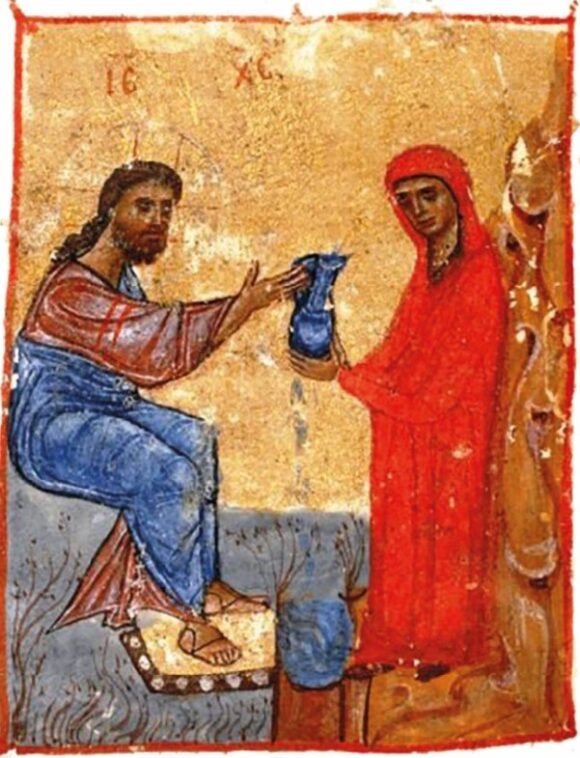WHAT IS ‘resurrection’? If you use a Bible concordance or a Bible app, you will find that the word only appears in the New Testament. The English word ‘resurrection’ is a translation of the Greek word ‘anastasis’, which means ‘standing’ or ‘rising up’. The word is used of being raised from the dead.
There is no equivalent Hebrew word in the Old Testament and the subject occurs in the Old Testament very much less frequently, but it is certainly there:
I know that my Redeemer lives, and at the last he will stand upon the earth. And after my skin has been thus destroyed, yet in my flesh I shall see God, whom I shall see for myself, and my eyes shall behold, and not another (Job 19:25–27).
God will ransom my soul from the power of Sheol, for he will receive me (Psalm 49:15).
At that time your people shall be delivered, everyone whose name shall be found written in the book. And many of those who sleep in the dust of the earth shall awake, some to everlasting life, and some to shame and everlasting contempt (Daniel 12:1–2).
The ‘book’ to which that verse in Daniel refers is the book of life (you can read more about this in Leviticus 32:32, Malachi 3:16 and Revelation 20:12). We see from these Old Testament verses that there will be a resurrection of people from the dead, which will be accompanied by judgement. The New Testament expands on these facts.
Jesus and Resurrection
Jesus preached the ‘good news of the kingdom of God’ (Luke 4:43). Central to his preaching was the promise of resurrection: ‘For this is the will of my Father, that everyone who looks on the Son and believes in him should have eternal life, and I will raise him up on the last day’ (John 6:40).
In the Gospels there are three recorded occasions on which Jesus raised dead people to life (there were probably many more). They are the widow of Nain’s son (Luke 7:11–17), Jairus’s daughter (Luke 8:49–58) and Lazarus (John 11). These practical demonstrations proved Jesus was not speaking idle tales when he preached the resurrection. The final and ultimate demonstration of resurrection was of course his own, when God raised His Son back to life three days after his crucifixion.
On one occasion Jesus met a Samaritan woman by a well. He said to her, ‘Whoever drinks of the water that I will give him will never be thirsty again. The water that I will give him will become in him a spring of water welling up to eternal life’ (John 4:14).
On another occasion he said, ‘Truly, truly, I say to you, whoever hears my word and believes him who sent me has eternal life. He does not come into judgement, but has passed from death to life. Truly, truly, I say to you, an hour is coming, and is now here, when the dead will hear the voice of the Son of God, and those who hear will live. For as the Father has life in himself, so he has granted the Son also to have life in himself. And he has given him authority to execute judgement, because he is the Son of Man. Do not marvel at this, for an hour is coming when all who are in the tombs will hear his voice and come out, those who have done good to the resurrection of life, and those who have done evil to the resurrection of judgement (John 5:24–29).
Jesus has the power to raise people from the dead: both those who believe in him and his Father and accept his message of salvation, to whom he will give eternal life; and those who reject his message, who will be judged accordingly.
The Apostles and Resurrection
Before Jesus ascended into heaven, he passed on the work of spreading the Gospel to his Apostles: ‘Go therefore and make disciples of all nations, baptizing them in the name of the Father and of the Son and of the Holy Spirit, teaching them to observe all that I have commanded you. And behold, I am with you always, to the end of the age’ (Matthew 28:19–20).
The fact of the resurrection of the Lord Jesus Christ was a most crucial part of the Apostles’ mission to the world. For example, ‘And as they were speaking to the people, the priests and the captain of the temple and the Sadducees came upon them, greatly annoyed because they were teaching the people and proclaiming in Jesus the resurrection from the dead’ (Acts 4:1–2).
1 Corinthians 15 is a celebrated chapter which is all about resurrection. There were some who were saying that there is no resurrection. With irresistible logic the Apostle Paul demonstrates that the reality of the resurrection of Jesus Christ, and following from this the resurrection of his followers, is central to the Gospel message.
Now if Christ is proclaimed as raised from the dead, how can some of you say that there is no resurrection of the dead? But if there is no resurrection of the dead, then not even Christ has been raised. And if Christ has not been raised, then our preaching is in vain and your faith is in vain. We are even found to be misrepresenting God, because we testified about God that he raised Christ, whom he did not raise if it is true that the dead are not raised. For if the dead are not raised, not even Christ has been raised. And if Christ has not been raised, your faith is futile and you are still in your sins. Then those also who have fallen asleep in Christ have perished. If in Christ we have hope in this life only, we are of all people most to be pitied (1 Corinthians 15:12–19).
Paul said in another letter that the fact of Jesus’ resurrection, and the hope of his own resurrection, were the primary motivating factors in his life: ‘That I may know him and the power of his resurrection, and may share his sufferings, becoming like him in his death, that by any means possible I may attain the resurrection from the dead’ (Philippians 3:10–11).
The First Century believers endured many trials and sufferings for their faith in the Lord Jesus Christ and ‘the power of his resurrection’, and many were killed for that faith. The facts of Jesus’ return to earth, and the resurrection and judgement that will follow, were central to their faith, as they must be in ours.
Writing a message of comfort for the congregation in Thessalonica, who were mourning for some of their number who had died, Paul reminded them that their loved ones were not perished, but asleep, waiting to be awakened:
We do not want you to be uninformed, brothers, about those who are asleep, that you may not grieve as others do who have no hope. For since we believe that Jesus died and rose again, even so, through Jesus, God will bring with him those who have fallen asleep. For this we declare to you by a word from the Lord, that we who are alive, who are left until the coming of the Lord, will not precede those who have fallen asleep. For the Lord himself will descend from heaven with a cry of command, with the voice of an archangel, and with the sound of the trumpet of God. And the dead in Christ will rise first. Then we who are alive, who are left, will be caught up together with them in the clouds to meet the Lord in the air, and so we will always be with the Lord. Therefore encourage one another with these words (1 Thessalonians 4:13–18).
Grahame A Cooper



